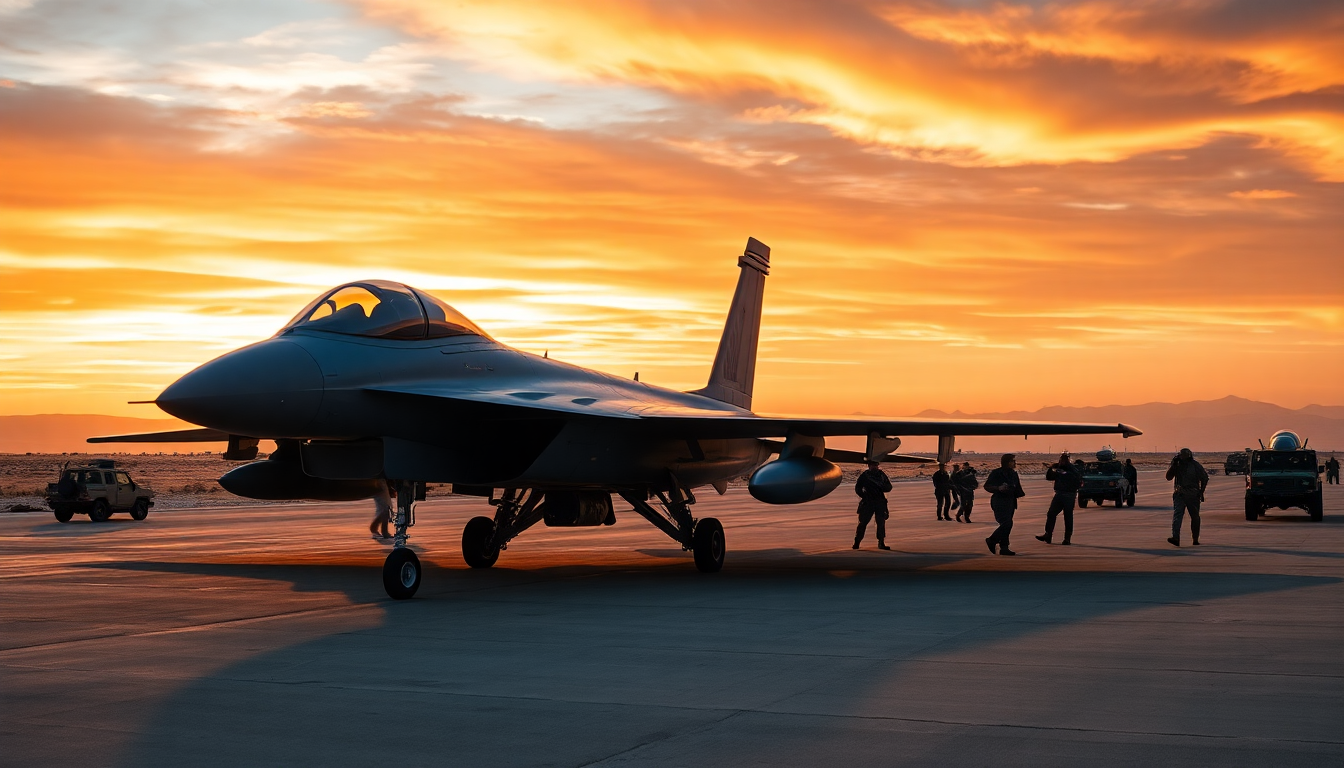Table of Contents
Recent military developments in the Middle East have raised eyebrows and sparked worries among global observers, especially after the recent attack on the Al-Udeid Air Base in Qatar. This incident not only reveals the region’s shaky geopolitical landscape but also highlights the intricate dance of military strategies and international relations at play. So, why does understanding these dynamics matter? Because their implications can stretch far beyond the borders of the Middle East, affecting both regional stability and global security.
What Happened at Al-Udeid Air Base?
On a recent Monday, U.S. defense officials confirmed that the Al-Udeid Air Base—a vital U.S. military hub in Qatar—was targeted by short-range and medium-range ballistic missiles launched from Iran. This unsettling news set off alarms, not just among military leaders but also among policymakers who are now grappling with the potential fallout from escalating hostilities. Thankfully, initial reports indicate that there were no U.S. casualties, and the situation is being monitored closely.
The Qatari foreign ministry wasted no time in condemning the attack, describing it as “brazen aggression.” They also noted that their air defense systems successfully intercepted the incoming missiles. This swift response underscores Qatar’s commitment to its sovereignty and its strategic partnership with the United States. A spokesperson for the Qatari foreign ministry emphasized that this attack was a blatant violation of their sovereignty.
Eyewitnesses in Doha reported hearing explosions that echoed throughout the city, adding to the sense of urgency. Meanwhile, Iranian state media announced that this was part of a broader operation targeting the American base, signaling a deliberate uptick in military rhetoric. What does this mean for the region? It suggests that tensions are at a boiling point.
Iran’s Reaction and Broader Regional Implications
In the aftermath of the missile strikes, Iranian officials made it clear that they see the attack on their nuclear facilities as a provocation that won’t go unanswered. Iran’s President, Mahmoud Pezeshkian, issued a serious warning, stating that while Iran isn’t looking for war, they will respond decisively to any aggression against their interests.
This situation is further complicated by reports that Iran provided Qatar with advance notice of the impending attack. What could this mean? It hints at a calculated strategy aimed at showcasing military capability without crossing the line into full-blown conflict. This approach mirrors Iran’s past responses to provocations, where they aim to balance deterrence with restraint.
Additionally, the Al-Udeid Air Base, which is home to about 10,000 American troops, is a critical hub for U.S. military operations in the Middle East, including efforts against ISIS. The strategic importance of this base is immense, as it plays a key role in logistical support and operational readiness for U.S. forces in the area.
Looking Ahead: Geopolitical Stability in Question
As tensions continue to escalate, the potential for further military confrontations remains a significant concern. Both U.S. and Qatari forces are now on high alert, with warnings issued for American citizens in Qatar to shelter in place. It’s a clear indication that caution is necessary in this unpredictable landscape.
Moreover, President Donald Trump’s recent visit to the Al-Udeid base highlighted the importance of U.S.-Qatar relations, especially in light of Iranian threats. The military sales agreement reached during his visit underscores the strategic alignment between the two nations, which is crucial for maintaining regional security.
In summary, the unfolding events surrounding the Al-Udeid Air Base serve as a stark reminder of how volatile security is in the Middle East. As nations navigate these complex relationships, the interplay of military power, diplomacy, and strategic interests will undoubtedly shape the region’s future. So, how will these developments unfold? Observers and analysts alike will need to stay alert, as the repercussions of these actions are likely to reverberate far beyond this immediate conflict.


